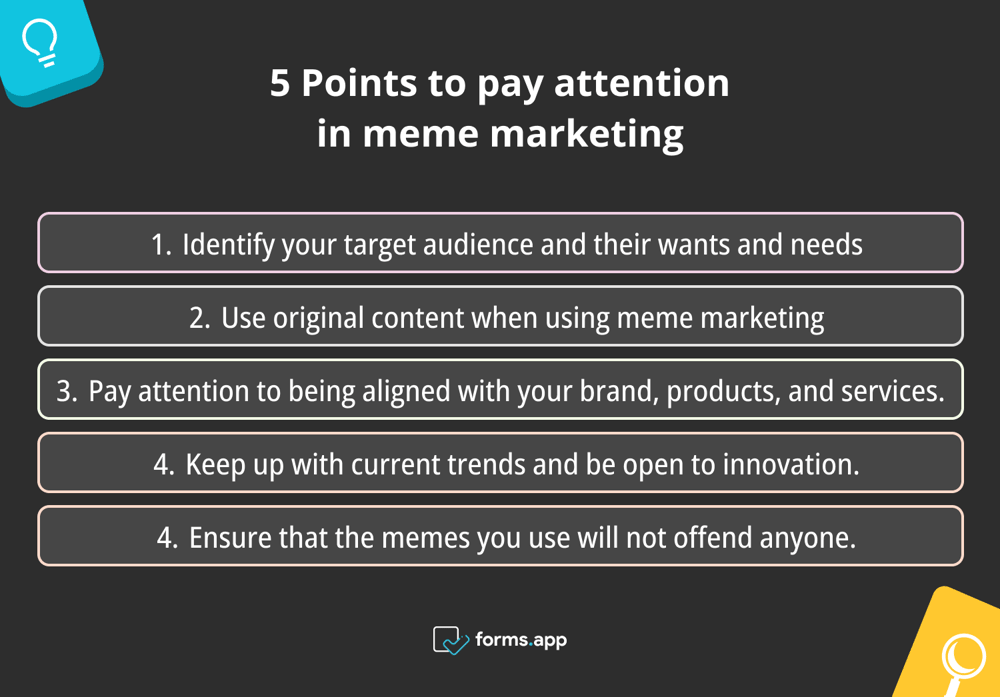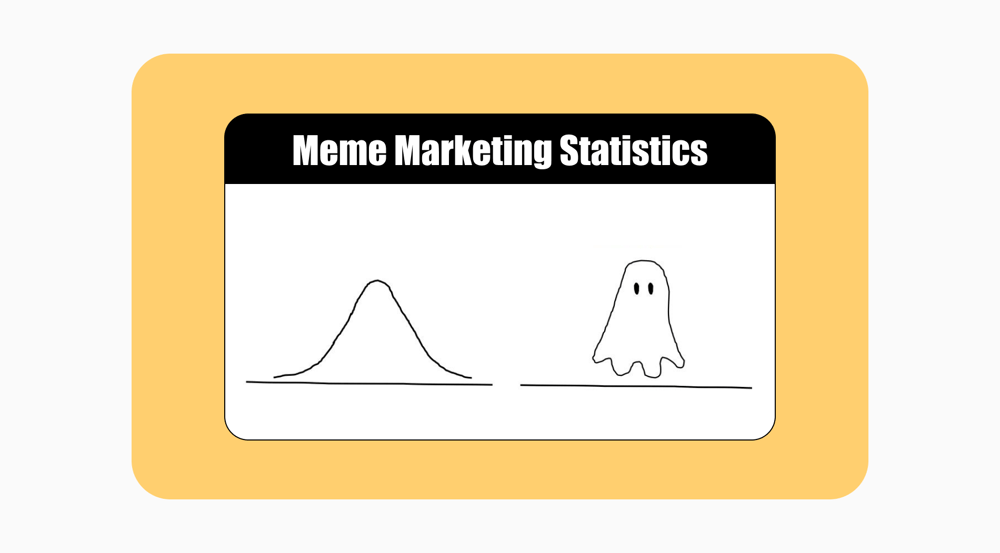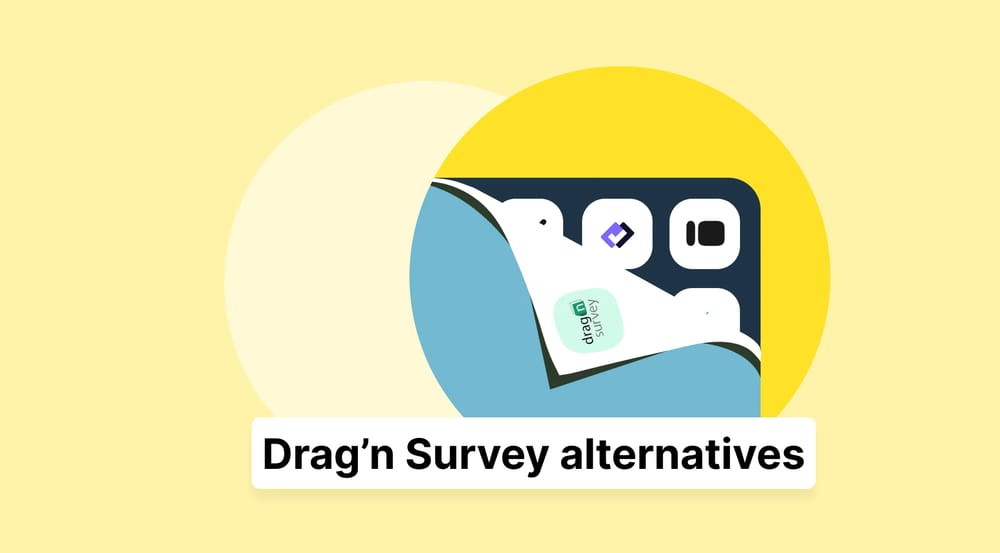Increasing competition for companies in a globalizing world has resulted in traditional marketing strategies becoming ineffective. As a result of the search for more interesting methods to reach target audiences, companies started using the meme marketing strategy. Memes, which have found a vast place in popular culture, have become a means of connecting with consumers.
The use of memes in marketing attracts the attention of potential customers and can help them connect with your brand. For this reason, meme marketing and meme demographics have become an effective marketing tool frequently used by brands. In this article, we have compiled 25+ meme marketing statistics for you to learn meme marketing effectively. Without further ado, let's see our article:
What is meme marketing?
Memes are visual representations of ideas and behaviors that circulate through social media platforms. Memes marketing refers to the process of promoting a product, service, or brand using memes. It aims to connect with potential customers by approaching them with humor. Meme marketing memes that companies use in their marketing strategies will increase customers' loyalty and engagement.
25+ Eye-opening meme marketing statistics
Mastering the meme culture and using it to deliver your brand to customers will enable you to establish a sincere bond with them. Thanks to the meme statistics and marketing memes, you will see the advantages of meme marketing and become a meme expert. You will also learn what points to consider when implementing this strategy. Now, let's move on to our statistics:
1. More than three billion people use social media, and 60% use it to share memes on social media and funny content (Forbes).
2. Memes are sent by 36% of survey participants to show emotions, 35% as a code, and 28% when words aren't enough to describe their feelings (YPulse).
3. In 2020, more than one million memes and social media posts with the hashtag "meme" were shared daily on Instagram (Instagram Blog).
4. More than 60% of consumers in online communities think they would be more inclined to purchase from a business that used memes in its advertising (Amra & Elma).
5. According to YPulse’s survey, 75% of 13 to 36-year-olds and 79% of 13 to 17-year-olds share memes (YPulse).
6. Meme campaigns have nearly ten times more reach, with 60% organic engagement on Facebook and Instagram, than standard marketing graphics, which only get about 5% of the engagement (Forbes).
7. In the eMarketer survey, 54 percent of respondents are sharing more political memes than before the pandemic (eMarketer).
8. Globally, there were more than 4.59 billion social media users in 2022; by 2027, that figure is expected to rise to nearly 6 billion (Statista).
9. Memes are sent by 74% of users to make others laugh or smile, and 53% as a reaction to something (YPulse).
10. An average millennial views twenty to thirty memes each day on social media platforms (Forbes).
11. 29% of Gen Z and Millennial social media users in the United States were most likely to create memes and post them. (Statista).
12. 33% of people in the United States check out memes in their daily lives (eMarketer).
13. In 2021, SHIBA INU (SHIB) earned 43 million more views than Bitcoin (BTC) to become the most popular meme cryptocurrency (Techabal).
14. 55% of 13-35-year-olds send memes every week, and 30% send them every day (The Next Scoop).
15. An NFT of the "Disaster Girl" meme sold for over 430,000 dollars (WebTribunal).
16. In the US, 35% of Gen Z and Millennial internet users were more likely to post memes made by someone else (Statista).
17. Thirty percent of 13 to 35-year-olds send memes every day, and fifty-five percent send them every week (YPulse).
18. Political memes make up about 60% of all memes (Forbes).
19. More than 60% of respondents said they would be more inclined to make a purchase from companies that use memes in their marketing (Enterprise Apps Today).
20. Women look at memes more than men, with 33 percent (eMarketer).
21. 38% of YPulse survey participants follow popular meme accounts on social media (YPulse).
22. 18% of Gen Z respondents believe brands should be funny in their created content to connect with their sense of humor (GWI).
23. 26% of people in the UK were viewing memes in 2020 (eMarketer).
24. Click-through rates (CTR) for meme marketing campaigns are 14% higher than those for email marketing (Enterprise Apps Today).
25. 43% of 13-17-year-olds and 56% of 18-20-year-olds follow meme accounts (YPulse).
5 points to pay attention in meme marketing
A meme marketing strategy allows you to reach your target audience in a cheap and effective way. The products or services you offer attract the attention of consumers through unique and original marketing. When applying the meme marketing strategy, there are points you should pay attention to to reflect the values your brand offers customers accurately. Some of these can be listed as follows:

Critical points to pay attention to in meme marketing
- You should correctly identify your target audience and their wants and needs.
- In order to stand out from the competition, you should use original content when using meme marketing.
- The content you use when implementing a meme marketing strategy should be aligned with your brand, products, and services.
- To attract and connect with customers, you must keep up with current trends and be open to innovation.
- You have to ensure that the memes you use will not offend anyone.
Final words
Meme marketing is a unique and effective way for your brand to reach its target audiences. When you implement the meme marketing strategy correctly, you can build a strong connection with your customers and ensure customer loyalty. In addition, including memes in your marketing strategy will help you save on your marketing budget and use your budget effectively.
In our article, we have compiled 25+ meme marketing statistics that will guide you in 2025. By reviewing the statistics, you can learn how to use meme marketing for your brand. You can also read the definition of meme marketing and the points to consider when doing meme marketing.
Now you know how to use meme marketing strategy and are ready to grow your brand!
forms.app, your free form builder
- Unlimited views
- Unlimited questions
- Unlimited notifications



